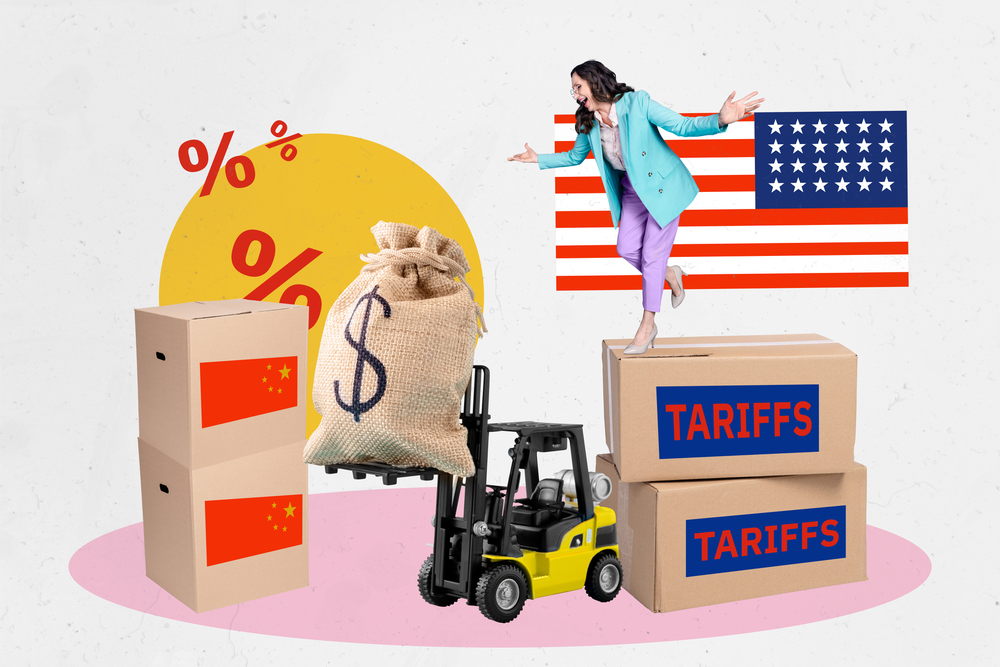We’ve long been told that if there’s one issue economists agree on… it’s free trade. Maybe economists still agree, but protectionism is all the rage in the policy world today. What gives?
In this episode of EconTalk, Russ Roberts brings back trade historian Douglas Irwin for a rich, illuminating discussion on tariffs, trade policy, and the ongoing temptation of economic nationalism. If you’re wondering why we keep having the same arguments about trade—over and over again—Irwin’s insights help explain both the history and the enduring politics behind it. (And if you’re not convinced after listening to this interview, you can also check out a similar conversation with Irwin on the Great Antidote Podcast with host Juliette Sellgren.)
Irwin opens with the economic basics: tariffs are taxes on imports, and like most taxes, they distort behavior. They may benefit a small, concentrated group—domestic producers—but they do so at the expense of the larger, dispersed group of consumers. As Irwin notes, this isn’t just an abstract efficiency loss. Tariffs represent a real redistribution of wealth from the many to the few.
The conversation moves fluidly between historical examples and modern parallels. Irwin revisits the Smoot-Hawley Tariff (a disastrous policy that helped deepen the Great Depression) and draws connections to more recent trade skirmishes. He underscores that the U.S., once a champion of liberal trade, is drifting toward a more nationalistic approach, one that’s increasingly skeptical of global interdependence. Irwin doesn’t shy away from the geopolitical context that challenges support for free trade—especially tensions with China—but he warns that trade wars often backfire.
What lingers most from this conversation is a sense of frustration. We know tariffs are costly and often ineffective. And yet, the same bad ideas find new packaging—and new support. Irwin reminds us that economics doesn’t defeat politics on its own. It needs allies, storytellers, and persistence. Let’s hear your ideas!
1. Irwin points to the power of narrative to help explain the resurging popularity of tariffs. The appeal of protecting domestic jobs, restoring industry, or “bringing back” lost greatness often overwhelms quiet economic reasoning. Politicians love the symbolic clarity of “saving American jobs,” even if the policy in question raises prices and undermines broader prosperity.
We know the economics of these explanations supporting protectionism are wrong. Can economists make a better case to the public for free trade? How would you correct these narratives? In other words, what might you say in response to these sorts of arguments? What new narrative might you offer that could be more compelling to the public at large?
2. Why aren’t trade deficits a big deal, according to Roberts and Irwin? The United States runs a trade deficit in goods with the rest of the world. That sure sounds bad. Why would the U.S. do such a thing, according to Irwin? And why are the deficits run by the United States with individual countries so varied?
Irwin also notes that the US runs a surplus in services with the rest of the world, particularly with regard to investment opportunities. Roberts asks why the stock market seems to be doing so well if indeed US trade policy is so terrible. How does Irwin reply, and to what extent does he persuade you with his reasoning?
3. Saving American jobs is often invoked as a reason to support tariffs and other trade restrictions. Yet Roberts insists that trade doesn’t affect the number of jobs. What does he mean by this? Roberts also acknowledges that freer trade makes the nation better off, even as some individuals will be made worse off. How can both these things be true?
Why do both Irwin and Roberts think it’s a good thing that the share of American jobs that are in manufacturing has shrunk so drastically? (And why do they argue we shouldn’t try to bring those manufacturing jobs “lost” overseas back?)
How would you frame these arguments if you were making them to a person who lost their job as a result of foreign competition?
4. Roberts asks Irwin to respond to the claim that the decline in the Rust Belt is a result of policies that were advocated by economists and which have only benefited rich people. How does Irwin respond, and again, to what extent are you convinced?
We’ll close with a question Irwin posed generally in response to the one above. How would you answer this question from Irwin, “How do we help individuals or communities—if we care about the community as well—in terms of overcoming some of these hurdles and the difficulties of economic dislocation, loss, and then the societal consequences of that?”


READER COMMENTS
vince
Sep 4 2025 at 3:01pm
Too much focus on economics and not enough on geopolitics.
Amy Willis
Sep 5 2025 at 11:20am
@Vince, can you say more about that? (Particularly, would more focus mean more or less support for protectionist trade policy?)
vince
Sep 5 2025 at 5:49pm
By geopolitics, I’m referring to international political relations.
If you believe in a unilaterism, then you won’t agree that nations should take into consideration the policies of other nations that distort free trade and alter balance of power globally.
A simple example is a foreign nation heavily subsidizing an industry. We can probably agree that subsidies aren’t efficient. If nation A subsidizes an industry that wrecks the industry in nation B, however, then nation B is right to consider forms of protectionism to protect itself from vagaries and detrimental effects of nation Bs distortion. It’s all very easy to respond that, lo and behold, then nation B can benefit from cheap products! And labor can shift to even better jobs! That’s a fine belief–until it fails.
And then there’s the issue of global political power. Free trade ideologues seem to disregard its importance, relying on the claim that free trade brings peace. That’s also a fine belief–until it fails.